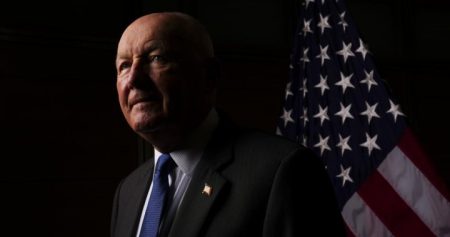The acquittal of Daniel Penny on charges of criminally negligent homicide in the death of Jordan Neely, a homeless man, on a New York City subway has ignited a firestorm of debate about vigilantism, mental health, and the precarious state of public safety in urban environments. The incident, captured on bystander video, unfolded on a northbound F train in May 2023. Penny, a 24-year-old Marine veteran, restrained Neely after Neely began exhibiting erratic behavior, reportedly shouting threats and throwing trash. Penny’s use of a chokehold, which he maintained for several minutes, ultimately led to Neely’s death. The subsequent trial centered on the question of whether Penny’s actions constituted reasonable self-defense or reckless disregard for human life. The jury’s verdict, delivered after approximately 12 hours of deliberation, sided with the defense, finding Penny not guilty, a decision that has further polarized public opinion and sparked protests across the city.
The case quickly became a flashpoint, attracting national attention and exposing deep societal fissures. Supporters of Penny framed the incident as an act of self-preservation in the face of a perceived threat, highlighting the increased prevalence of mental illness and homelessness on public transit and arguing that Penny was intervening to protect fellow passengers. They portrayed Neely, who had a history of mental health struggles and numerous arrests for offenses ranging from fare evasion to assault, as a dangerous individual whose unpredictable behavior justified Penny’s intervention. Fundraising efforts for Penny’s legal defense garnered significant support, underscoring a prevailing sentiment among some that individuals should be empowered to take action in situations where they feel threatened, particularly in contexts where they perceive a lack of adequate response from law enforcement or social services.
Conversely, those who condemned Penny’s actions characterized the incident as a tragic example of excessive force and vigilantism, arguing that Neely’s behavior, while disruptive, did not warrant the level of force used. They pointed to the fact that Neely was unarmed and ultimately succumbed to a chokehold, a restraint technique associated with inherent risks, particularly when sustained for extended periods. Critics further contended that the incident reflected a disturbing pattern of disproportionate violence against people of color, particularly those experiencing homelessness and mental illness. They argued that Neely, a Black man, was subjected to a level of scrutiny and force that a white individual behaving similarly would likely not have faced. This perspective fueled protests and demands for accountability, with many advocating for greater investment in mental health services and social support networks to address the root causes of homelessness and mitigate the potential for such confrontations in the future.
The legal arguments presented during the trial hinged on the concept of reasonable self-defense. The prosecution argued that Penny’s use of a chokehold went beyond what was necessary to subdue Neely and constituted reckless endangerment. They presented expert testimony challenging the defense’s assertion that Neely posed an imminent threat of serious physical harm to himself or others, emphasizing that Neely’s actions, while disruptive, did not involve physical violence. The defense, however, maintained that Penny acted in good faith, believing that Neely posed a credible threat, and that the chokehold, while ultimately fatal, was not intended to kill Neely but rather to restrain him until authorities arrived. They emphasized Penny’s military training and argued that he acted instinctively in a chaotic and stressful situation, emphasizing the perceived lack of intervention from other passengers and the perceived urgency of the situation.
The jury’s decision to acquit Penny has been met with mixed reactions, reflecting the deep divisions within society over the issues at play. While some celebrated the verdict as a vindication of the right to self-defense, others expressed outrage, viewing it as a miscarriage of justice and a signal that the legal system disproportionately favors those with privilege and power. The acquittal has also sparked renewed calls for comprehensive reforms in addressing mental health, homelessness, and public safety. Advocates argue that investing in preventative measures, such as increased access to mental health care, affordable housing, and social support services, is crucial to addressing the underlying issues that contribute to such tragic incidents. They also call for greater accountability for law enforcement and a more nuanced approach to public safety that prioritizes de-escalation and crisis intervention over the use of force.
The death of Jordan Neely and the subsequent acquittal of Daniel Penny serve as a stark reminder of the complex challenges facing urban communities. The incident has underscored the urgent need for a more compassionate and effective approach to addressing mental health and homelessness, as well as the imperative of fostering a culture of empathy and understanding in our public spaces. The ongoing debate surrounding the case highlights the deep societal divisions over issues of race, class, and justice, and underscores the need for constructive dialogue and meaningful action to address the systemic inequities that contribute to such tragedies. Moving forward, the legacy of this incident should be a catalyst for positive change, prompting a critical examination of our collective responsibility to create safer and more equitable communities for all.










